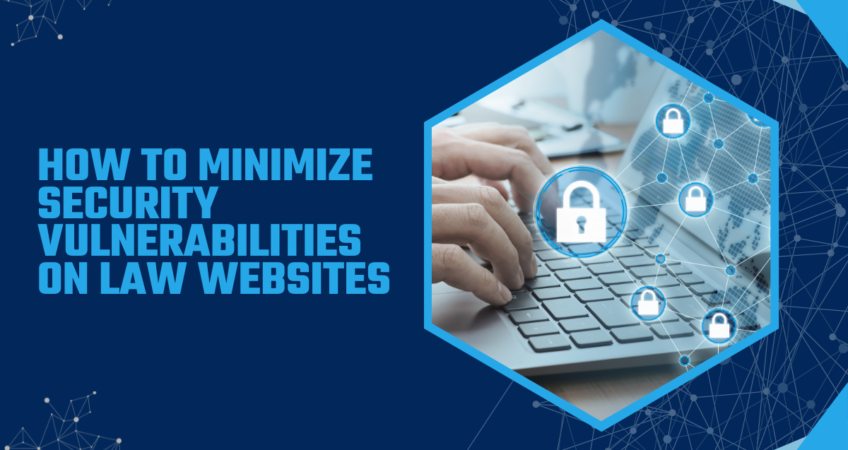
How to Minimize Security Vulnerabilities on Law Websites
The digital age has revolutionized how law firms operate, making websites a central component of their public face and operations. Given the sensitive nature of legal work and the confidential information law firms handle, ensuring a secure website is not just a best practice—it’s a mandate. Here’s a guide on minimizing security vulnerabilities on your Los Angeles website:
1. Regularly Update & Patch Systems
Software, plugins, and content management systems (CMS) regularly release updates to address security flaws. Ensure that you’re using the latest versions of all software and plugins on your website. This can prevent hackers from taking advantage of known vulnerabilities.
2. Use Strong, Unique Passwords
Enforce strong password policies. A strong password generally includes a mix of uppercase letters, lowercase letters, numbers, and symbols. Consider using password managers that can generate and store complex passwords securely.
3. Implement Multi-Factor Authentication (MFA)
MFA adds a layer of security, requiring users to provide two or more verification factors to be granted access. This can be something they know (password), something they have (a phone or hardware token), or something they are (fingerprint or facial recognition).
4. Secure Your Hosting Environment
Choose a reputable web hosting provider known for prioritizing security. Ensure that the hosting environment is configured securely, with features like intrusion detection systems and firewalls in place.
5. Secure Sockets Layer (SSL) Encryption
SSL encrypts data transferred between a user’s browser and your website, ensuring that any sensitive information, like personal details or payment data, is secure. An SSL certificate boosts client credibility and can benefit your website’s search engine ranking.
6. Regular Backups
Ensure your website data is backed up regularly, ideally on a separate server or cloud storage. In case of any breach or accidental data loss, you can quickly restore your site to its prior state.
7. Limit User Access
Not everyone in your firm needs access to all parts of the website. Assign roles and permissions based on necessity. Regularly audit and update these permissions and promptly revoke access for former employees who no longer require it.
8. Monitor & Respond to Threats
Use tools and software that monitor your website for suspicious activity. These tools can alert you to potential threats, allowing for swift action. Additionally, have a response plan in place for a breach.
9. Secure Contact Forms & File Uploads
Contact forms can be a gateway for malicious scripts if not correctly configured. Ensure they’re coded securely and use CAPTCHA to prevent spam and bot submissions. If your website allows file uploads, ensure files are scanned for malware, and the upload function can’t be exploited.
10. Educate Your Team
Many breaches occur due to human error. Regularly train your team on best practices, like spotting phishing emails, ensuring secure connections when working remotely, and regularly updating passwords.
11. Hire or Consult with a Cybersecurity Expert
Considering the stakes, having a cybersecurity expert audit your website, identify potential vulnerabilities, and suggest appropriate defenses might be beneficial. Their expertise can provide invaluable insights that go beyond general best practices.
12. Conduct Regular Security Audits
Periodic security audits can identify vulnerabilities before they are exploited. This proactive approach will ensure that your defenses evolve with the ever-changing landscape of cyber threats.
Conclusion
In conclusion, securing a law firm’s website cannot be overstated. With the rise of cyber threats, ensuring client data and firm reputation are protected is paramount. By implementing rigorous security measures and fostering a culture of security awareness within the firm, law websites can mitigate the risks and ensure they serve as a robust digital fortress in the face of potential cyber adversaries.

